The Fifth International Forum on Big Data for Sustainable Development Goals opened in Beijing on Sept 6, marking the fifth anniversary of the establishment of the International Research Center of Big Data for Sustainable Development Goals (CBAS).
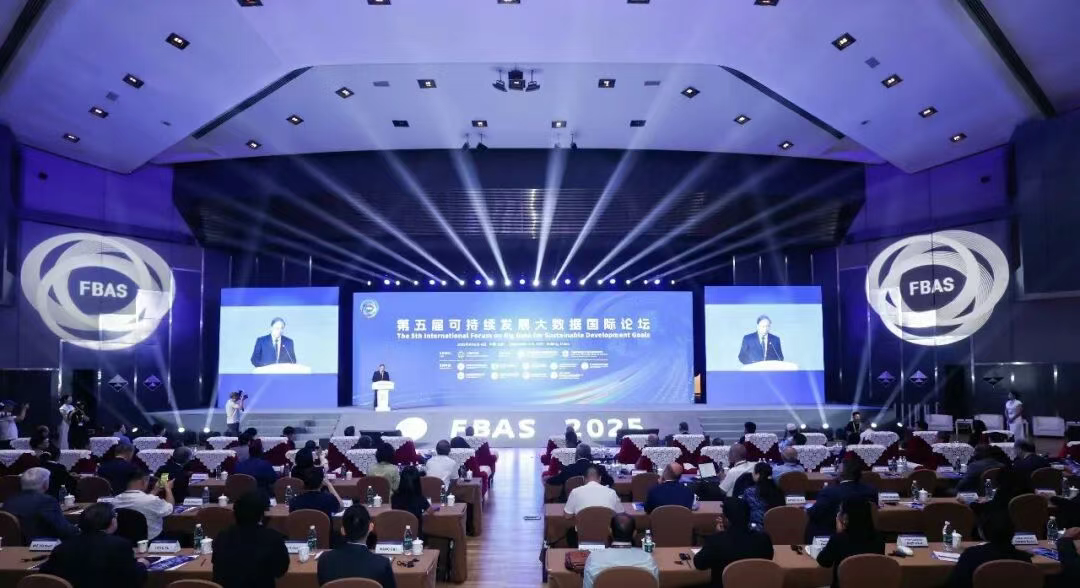
The forum aims to enhance global cooperation in leveraging big data for sustainable development, share experiences and practices in digital technology supporting the Sustainable Development Goals (SDGs), and outline a technology-driven roadmap to accelerate progress over the next five years.
The opening ceremony featured addresses by He Hongping, Vice President of the Chinese Academy of Sciences (CAS); Li Junhua, Under-Secretary-General of the UN; Liu Zhenmin, China's Special Envoy for Climate Change; Bai Chunli, Founding President of the Alliance of National and International Science Organizations for the Belt and Road Regions; Danilo Türk, Former President of Slovenia and President of Club de Madrid; Dai Gang, Director-General of the Department of International Cooperation at the Ministry of Science and Technology; Lidia Brito, Assistant Director-General for Natural Sciences at UNESCO; and Li Lifeng, Director of the Land and Water Division at the Food and Agriculture Organization of the UN.
Keynote speeches were delivered by Csaba Korosi, President of the 77th UN General Assembly; Guo Huadong, Academician and Director of CBAS; and Quarraisha Abdool Karim, President of The World Academy of Sciences. Their addresses centered on the role of digital intelligence in advancing sustainable transformation, the acceleration of SDG progress through emerging technologies, and the importance of global scientific collaboration in fostering an equitable and sustainable future.
In his address, Korosi emphasized the need for systemic change and global cooperation to translate macro visions into actionable results. He highlighted challenges such as geopolitical conflicts, economic fragmentation, and debt crises, which are diverting attention from sustainable development. Kőrösi also underscored the critical role of artificial intelligence in data collection, trend analysis, and policy formulation, calling for a unified system to measure sustainability.
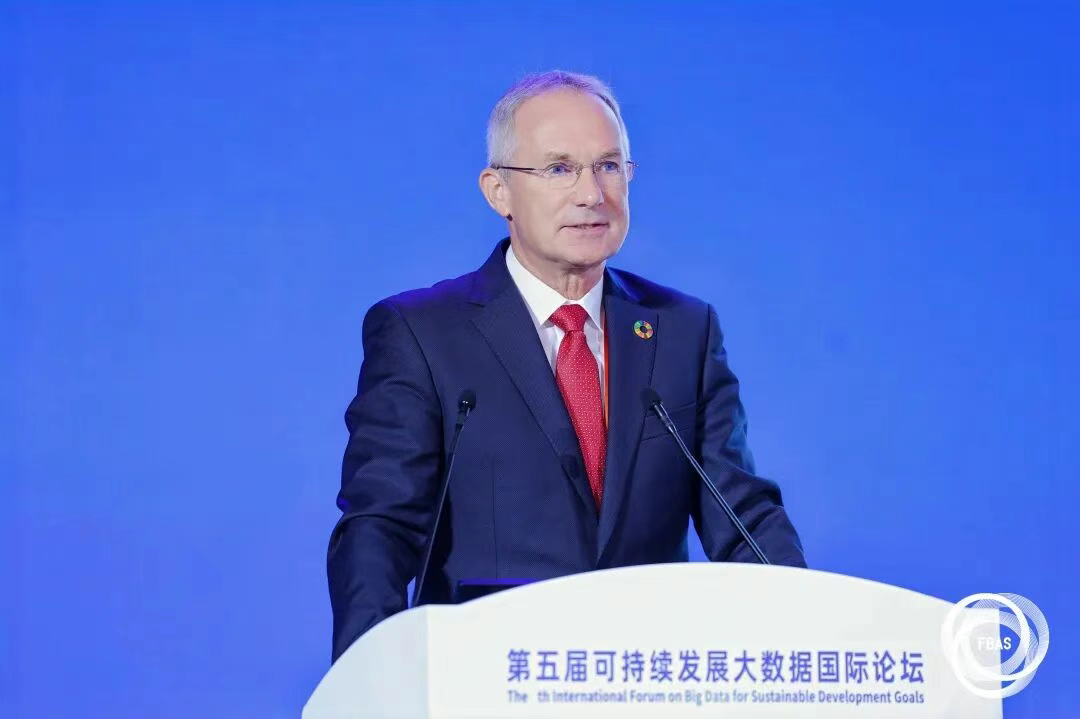
Guo Huadong elaborated on the pivotal role of digital technologies like big data, AI, and cloud computing in accelerating the SDGs. He introduced the Digital Sustainable Development Goals Programme, led by CBAS, which aims to provide digital infrastructure, indicator systems, global scientific reports, and transformation models through international research and open science. Guo called on the global community to harness digital technology as a key driver for sustainability as the SDG agenda marks its tenth anniversary.
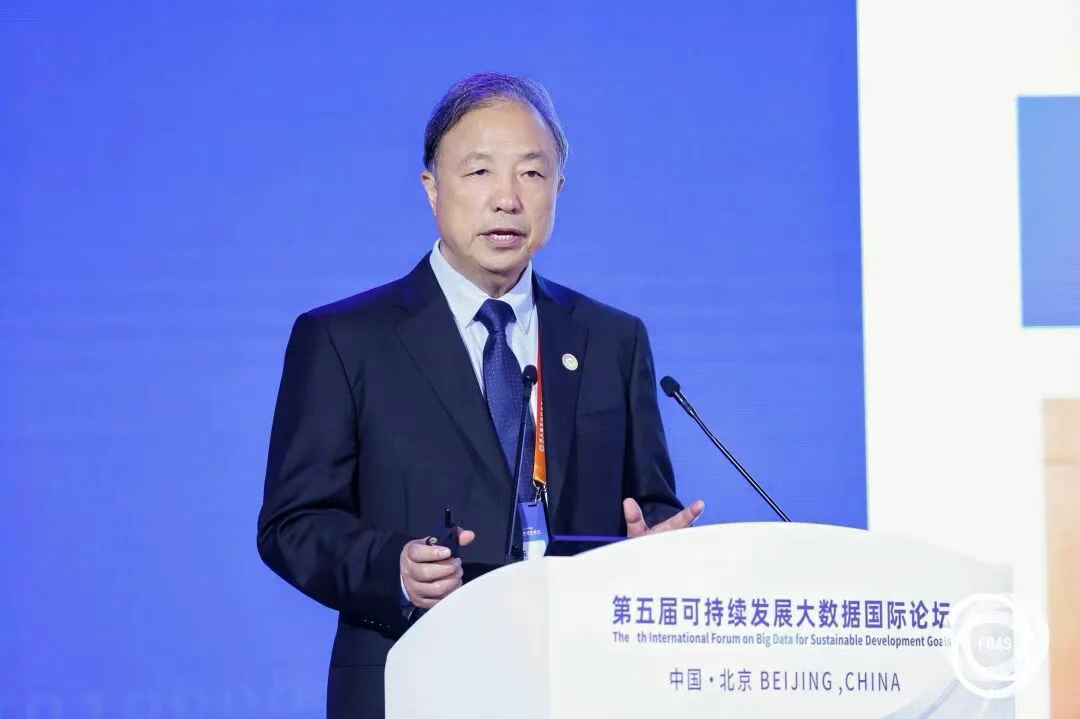
Quarraisha Abdool Karim stressed that scientific innovation is essential for promoting global equity and sustainable development. She warned that without breaking down digital barriers, technological benefits would not be universally shared. While big data and AI can accelerate progress in the Global South, she noted, they also risk widening digital divides. She urged enhanced capacity building, recognition of Global South leadership in research, and stronger collaborative partnerships.
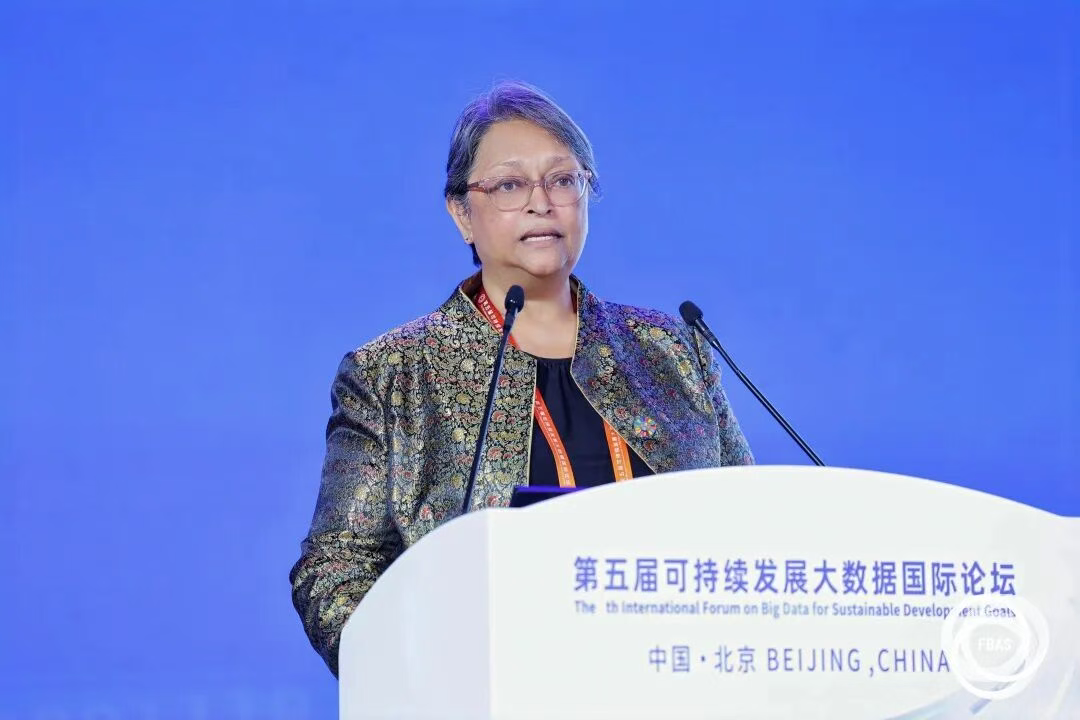
During the forum, CBAS launched "Lingxi SDGs Large Models," an AI-powered large language model designed for comprehensive monitoring, analysis, and simulation of SDG progress (available at: https://sdg.casearth.cn/ai/). It is the first model globally dedicated to supporting the UN SDGs. The system integrates multimodal data fusion, retrieval-augmented generation, spatiotemporal analysis, causal inference, and predictive simulation, featuring five intelligent agents for literature review, indicator analysis, report generation, 3D interaction, and narrative intelligence.
Additionally, the "Earth Big Data Science Series" was released jointly by CBAS, the CAS Strategic Priority Research Program (Category A) "Big Earth Data Science Engineering," and Science Press. This publication is the first of its kind to systematically summarize research frameworks in Earth big data. Academician Guo stated that the series reflects the evolution of Earth big data from observation and analysis to knowledge integration and intelligent application, bridging scientific research and policy practice.
Five distinguished figures were elected as 2025 CBAS Fellows: Johannes Cullmann, Scientific Advisor to the President of the 77th UN General Assembly; Ameenah Gurib-Fakim, Former President of Mauritius; Ibrahim Thiaw, Former Executive Secretary of the UN Convention to Combat Desertification; Danilo Türk; and Wang Jian, Director of Zhejiang Lab and Founder of Alibaba Cloud.
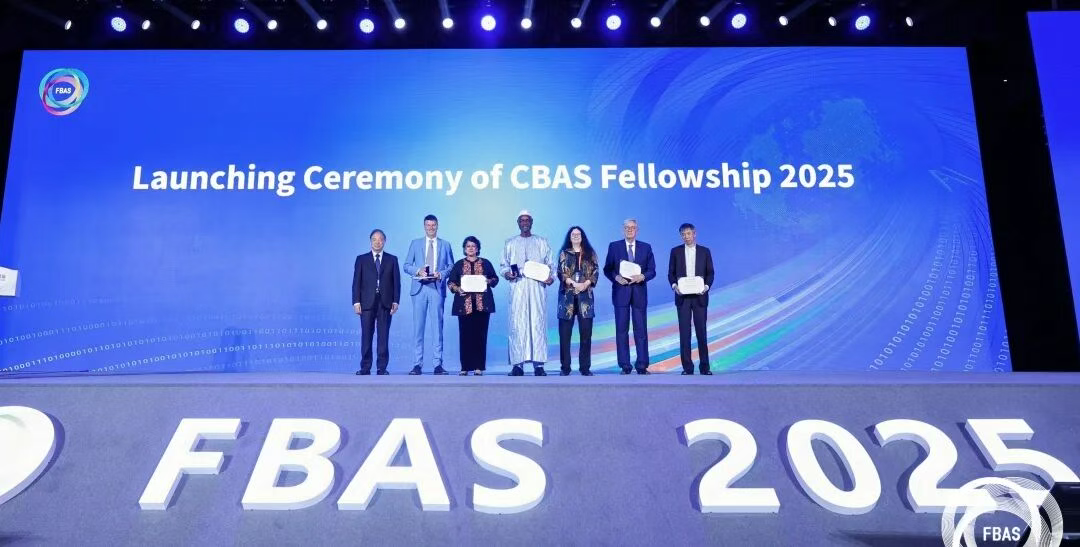
Over three days, the forum will feature six special sessions and 39 parallel sessions covering topics such as digital technology for global sustainability, AI-driven SDG acceleration, youth action, international cooperation on water and disaster management, and Earth big data applications in Africa and Small Island Developing States. The event has attracted over 700 participants from nearly 50 countries and 17 international organizations.
Co-organized by CAS and hosted by CBAS and the Aerospace Information Research Institute under CAS, the forum received support from multiple UN agencies and international organizations.